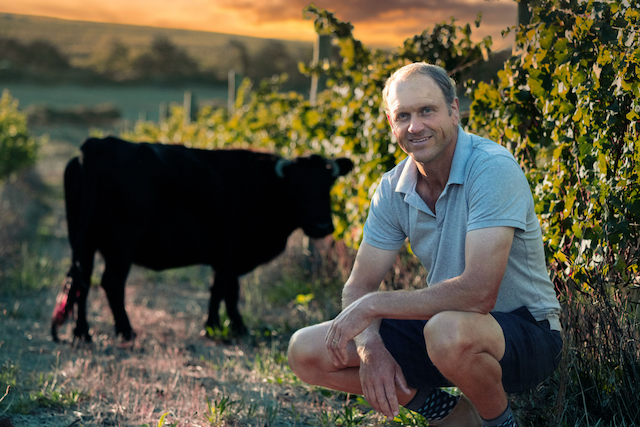As the South African wine industry gathers today, 22 May 2025, in Stellenbosch for the South Africa Wine Summit, a bold research initiative is turning heads. The newly launched ReGenWine project is exploring how the integration of cattle into vineyards could enhance sustainability, cut costs, and build resilience in a changing climate.
Led by Stellenbosch University (SU) and funded by South Africa Wine, the three-year study is one of the most comprehensive scientific efforts yet to test regenerative viticulture in a working wine estate. It is being conducted primarily at Hartenberg Wine Estate in the Western Cape.
Sustainable Answers for a Pressured Industry
The launch of ReGenWine comes at a crucial time. Wine farmers are facing the dual pressure of rising input costs and intensifying climate impacts—issues expected to be central to today’s 22 May 2025 discussions at the Summit.
“Everywhere I go, people want to talk about sustainability,” said Gerard Martin, executive for research development and innovation at South Africa Wine. “This study will help us understand what regenerative farming could mean for the industry’s future.”
ReGenWine aligns closely with the themes of innovation and climate resilience being discussed at the summit, making it a timely contribution to the industry’s future planning.
Inside the Regenerative Model
The ReGenWine project puts regenerative farming principles into action. It involves planting cover crops like oats and grasses between vine rows to suppress weeds, retain moisture, and boost biodiversity. After the harvest, Dexter cattle—a small, vineyard-suited breed—graze these crops.
Their manure enriches the soil naturally, reducing reliance on chemical fertilisers. The cattle can also provide a secondary income stream through meat sales or use in the estate’s restaurant.
“We’ve seen the land come alive,” said Wilhelm Joubert, viticulturist at Hartenberg. “Bringing animals into the vineyards has improved soil structure and brought back key organisms like earthworms and dung beetles.”
Hartenberg’s broader regenerative shift, which began in 2017, has earned it international recognition. Earlier this year, it became the first South African wine estate to be verified under the Ecological Outcome Verification (EOV) framework.

Science Backed by Five Teams
To ensure the study produces measurable results, ReGenWine is driven by five interdisciplinary teams from SU:
Soil System: Measures carbon levels, microbial activity, and soil health.
Grapevine to Wine System: Tracks vine growth and juice quality with precision tools.
Cover Crop and Animal System: Studies livestock movement, feed intake, and nutrient cycling.
Economic and Environmental Circularity: Analyses input-output models and return on investment.
Knowledge Coordination: Ensures efficient project management and data sharing.
This scientific approach aims to move regenerative wine farming from theory to proven practice—giving wine producers the evidence they need to adopt new methods.
Building a Better Future
ReGenWine builds on pre-trial work done between 2022 and 2024. Project lead Professor Melané Vivier is clear about its long-term purpose: “We’re laying the foundation for future innovation—not just for this farm, but for the broader industry.”
With today’s 22 May 2025 Summit spotlighting climate resilience and innovation, ReGenWine stands as a timely symbol of how South Africa’s wine industry can embrace change—and lead it.
